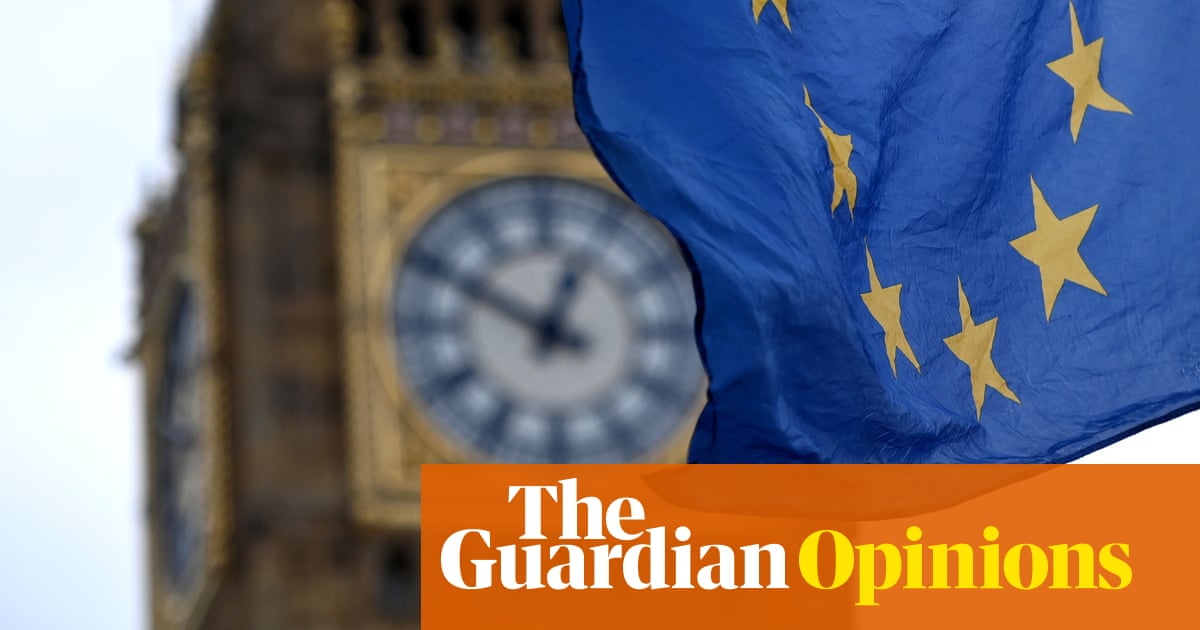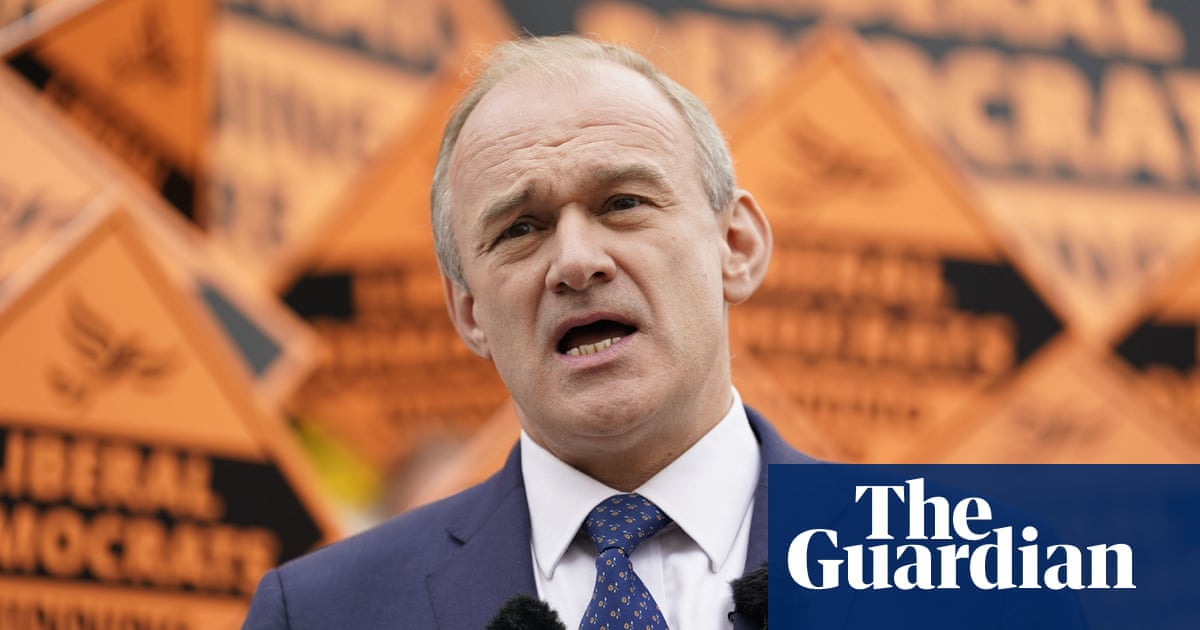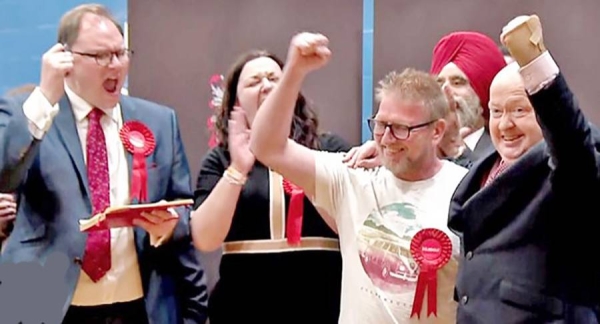
Nelson Mandela said: “It always seems impossible until it’s done.” It’s one of many political quotes that I have on my office wall. Sadly, the Brexiters had it on their walls too. They showed how change once thought unthinkable can become the status quo. With the populist virus still rife in the Tory party, with Labour insisting it will “make Brexit work” and the Lib Dems also largely silent on it, it would appear to be the settled will of our politics that the Brexit decision cannot be revisited.
But if converting the country to a bad Brexit was possible, so is restoring it to good sense. People by and large accepted the result. They gave the government the chance to show it could work. However, bit by bit, despite the welter of gaslighting propaganda, more and more have learned through direct experience that Brexit is damaging lives and livelihoods.
There are the frustrating inconveniences – such as when it took me 40 minutes at a French post office to complete all the paperwork needed to send a gift to our daughter in Scotland. But there are also the ones that are causing, and will continue to exert, enormous economic damage. When Mark Carney, a former Bank of England governor, pointed out how the UK economy fell from being 90% the size of Germany’s economy in 2016 to 70% in 2022, Tories immediately condemned him as a bitter remoaner and blamed Covid and the war in Ukraine, dodging the obvious fact that Germany, and all other countries, were also hit by those events.
We must never stop calling out the damage Brexit is doing to our economy, society, culture and standing in the world. We must continue to point out that Brexit was a decision made by one generation, in response to a campaign led by a now utterly discredited prime minister, Boris Johnson. The younger generations whose future has in so many ways been spoiled, and indeed stolen, have every right to fight to have the decision revisited. So yes, press for the public inquiry. One day it will come. And yes, press to get back to some kind of sane relationship. Change comes to those who fight for it.
Labour did pretty well in the local elections last week. So did the Lib Dems. Both could do even better, in my view, if they undertake in their manifestos to say something like this: “We accept the result of the referendum. But the Brexit as delivered, far from working, is daily damaging the real interests and needs of the people of this country, in ways large and small, and as a matter of urgency its workings must be reviewed and where necessary, new arrangements negotiated and put in place.” The Tories will accuse them of wanting to take us back in – but they will say that whatever Labour says.
Despite the Tories’ best efforts to hide from reality, there are votes to be gained by exposing the real bills of their bungled Brexit. Far from having nothing to do with leaving the EU, the current cost of living crisis has an awful lot to do with Brexit. The media collectively appear to have decided that the prime minister, Rishi Sunak, isa technocratic problem-solver; a numbers man who understands the economy. Yet his first big call in politics was to make the case that Brexit would deliver a high-growth, dynamic economy. He got it wrong and was an essential part of an economically catastrophic decision.
Keir Starmer, by contrast, knows there is much to do to mitigate the worst damage being done by Brexit without reopening the whole argument now. I understand his reasons for not going further, but believe he can and should do so, not for reasons of ideology but hard-headed, patriotic common sense. If the country is being damaged, we have to repair the damage and put something better in the place of the things doing the damage.
To fight the next fight, if and when it comes, we need to look and learn with humility from our failure in the last one. Looked at purely through the objective, strategy and tactic frame I apply to any campaign – clear objective, clear strategy, adaptable and innovative tactics – the People’s Vote campaign had a lot going for it. The objective was clear: a second referendum on the final Brexit deal. We had a clear strategy: persuading the public to pressure and persuade MPs that a second referendum was the way to resolve the mess. And we were pretty good on the tactics, too.
Ultimately, the whole thing fell down in the formal leadership within the campaign, and in the erratic leadership of the politicians outside it. The Liberal Democrats, arguably the most anti-Brexit party, became seized by an absurd conviction that they were on the verge of electoral triumph, so fell into the trap the Tories were laying for a “get Brexit done” early election. The Scottish Nationalists, who had more realistic prospects of doing well in a general election, fell even more willingly into the trap. Labour had no option but to go along with it, and a parliament in which momentum towards a second referendum was growing, voted to end itself and give Johnson the gift he wanted.
In any case, by then, the campaign had largely imploded. Chairman Roland Rudd, with the support of a board largely divorced from it, sacked the people actually running things, who were not just effective, but also a major reason for the motivation of the young team. Rudd denied access to the data, locked key staff out, destroyed morale and drained the energy that had been achieving so much.
Added to that, we became part of the problem we were trying to solve. The referendum had been a deeply polarising event. And while polarisation may have yielded us a support base of millions, it also hardened the opposition of the leavers and Tories whose support we needed.
We have to learn the lessons from our mistakes if and when the next fight comes. What is clear is that the Tories have learned nothing from their mistakes, gigantic though they have been. I cannot pretend that sorting out the Brexit mess, let alone rejoining the EU, will happen soon, or that it will be easy, but as a country we have a choice – accept our decline or fight to get our future back. Reality is catching up on Brexit fast. As it does, be inspired by another Mandela quote on my wall: “A winner is a dreamer who never gives up.”
Alastair Campbell was official spokesman and director of communications and strategy in Tony Blair’s government. His latest book, But What Can I Do? Why Politics Has Gone So Wrong, and How You Can Help Fix It, is out now












